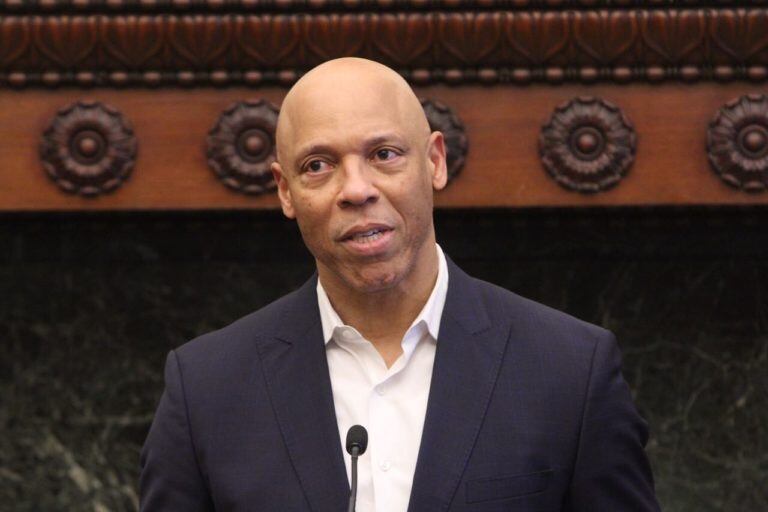Superintendent William Hite promised Philadelphia board of education members and the public on Thursday that school buildings will not open “for in-person learning unless we have confidence that every health and safety measure is met.”
Hite made the statement at the board’s monthly action meeting at which he presented his latest reopening update, including more details on the district’s ventilation inspections and results for city schools.
The district is planning for hybrid learning, a mix of virtual and in-person classes, to start Nov. 30 for 32,000 students in pre-kindergarten through second grade. Staff and teachers are scheduled to return on Nov. 9 to prepare.
Some parents and teachers questioned the plan, but there was nowhere near the same level of outrage and opposition that occurred in July, when Hite proposed opening schools in September using a hybrid model.
Board members asked several questions and sought more information, particularly around adequate ventilation in schools, but seemed largely satisfied with the report and the timetable.
Hite and the district’s new chief operating officer, Reginald McNeil, shared information on the ventilation assessments and air quality balancing occurring in schools. Hite said 119 schools have complete readiness reports conducted by contractors hired by the district, including ventilation, and 102 “are completely ready” for occupancy. Another 105 reports still need to be completed, and he promised that all reports for schools slated for occupancy will be available by Nov. 12. There are 80 reports online now.
Without identifying them, he said there are 25 schools, 17 of them elementary schools, that need major work to meet industry and public health ventilation standards, and they either will be kept offline or be equipped with fans as a temporary fix.
Parents have to decide between Oct. 26 and Oct. 30 whether to choose hybrid learning or continue all virtual.
“Verified air balancers are used to determine the number of people who can safely occupy a space,” McNeil said. The ventilation reports will include safe occupancy signs for each classroom based on the ventilation report and social distancing requirements,.
On July 30, the district passed a Health and Safety plan required by the Pennsylvania Department of Education outlines detailed protocols lans for maintaining safe conditions.
Hite said 99% of new cleaning positions have been filled and that 99.4% of all personal protective equipment, including masks, have been delivered.
Philadelphia Federation of Teachers president Jerry Jordan said his team had received building reports on Thursday. The union reached a tentative agreement with the district Wednesday night that includes a “memo of understanding” that outlines detailed safety protocols the district must follow.
“Given the district’s years of deferred maintenance, and massive district-wide ventilation issues, reopening in any capacity will be enormously challenging, and our analysis of the ventilation reports and other standards will determine the feasibility of these efforts,” Jordan said.






